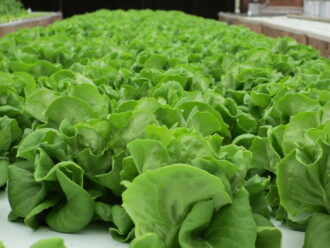GRIFFIN, Georgia – The Southern Sustainable Agriculture Research & Education (SSARE) program has announced the funded projects for the 2022 Graduate Student Grants program.
The SSARE Administrative Council recently funded 20 projects totaling $316,024. The Graduate Student Grants program is one of the few sustainable agriculture research funding opportunities open to Master’s and PhD students enrolled at accredited institutions throughout the Southern region.
The projects awarded for FY2022 include:
GS22-254 Integration of Root-knot nematode Resistant Pepper Cultivars into an Organic and Sustainable Production System in Florida, $16,232, University of Florida
GS22-255 Beetle Herding: Development of Strategies to Optimize Biological Control of Air Potato Using Attractants, $12,921, University of Florida
GS22-256 Sustainable Strategies to Alleviate Heat Stress in Lettuce, $16,392, University of Florida
GS22-257 Farmer Profitability and Willingness to Accept Payment to Adopt Cover Crops in Alabama, $16,500, Auburn University
GS22-258 Climate Change and the Sustainability of Deciduous Fruit and Nuts in the Southern States, $16,500, Virginia Tech
GS22-259 PRECISION: Leveraging Deep Reinforcement Learning Algorithm for Sustainable Irrigation Scheduling, $16,500, Clemson University
GS22-260 Quantifying the Risks of Pesticide Exposure to Squash Bee Behavior and Pollination Services, $16,500, University of Texas at Austin
GS22-261 Climate Change Impacts on the U.S. Livestock Sector and Possible Adaptations, $16,500, Texas A&M University
GS22-262 How Do Soil Microbes Respond to Chickpea Replacing a Bare Fallow Period in Southeastern Row Crop Agroecosystems? $16,484, University of Florida
GS22-263 Development and Phenotypic Evaluation of a Brassica oleracea Leafy Greens Diversity Panel, $16,500, Clemson University
GS22-264 Social Valuation of Forest-based Ecosystem Services of Female Forest Landowners in Georgia, United States, $15,081, University of Georgia
GS22-265 Supporting Peach Growers with a Phenological Approach for Best Management Practices, $16,281, Auburn University
GS22-266 Optimizing Anaerobic/Biological Soil Disinfestation Amendment Composition Through Soil Fermentation Experiments, $16,500, University of Tennessee
GS22-267 Improving Blueberry Farming Sustainability Through Better Fertilizer Timing, $15,620, University of Florida
GS22-268 Identifying the Microbial-mediated Strategies for Optimum Phosphorus Uptake in Bahiagrass and Rhizoma Peanut Mixture, $16,454, University of Florida
GS22-269 Exploration and Evaluation of the Native Parasitoids of Invasive Spotted-wing Drosophila, Drosophila suzukii, for Biological Control, $13,354, University of Georgia
GS22-270 The Role of Black Farmer Organizers in Promoting Healthy and Sustainable Local Community Food Access, $15,911, Virginia Tech
GS22-271 Novel Energy Efficient UVC Autonomous Robotics Platform for Sustainable Strawberry Fungal Management, $16,496, Middle Tennessee State University
GS22-272 Improving Vegetable Soybean Seedling Emergence Through Novel Organic Seed Treatments, $14,998, Virginia Tech
GS22-273 Native Texas Perennial Bunchgrass for Bioenergy Feedstock and Ruminant Nutrition, $14,300, Tarleton State University
Graduate Student Grants are one of five grant opportunities offered by Southern region SARE to support sustainable agriculture research, outreach and education. The Call for Proposals for Graduate Student Grants opens in March. Grant proposals are due in May and funded projects are announced in August.
Published by the Southern Region of the Sustainable Agriculture Research and Education (SARE) program. Funded by the USDA National Institute of Food and Agriculture (NIFA), Southern SARE operates under cooperative agreements with the University of Georgia, Fort Valley State University, and the Kerr Center for Sustainable Agriculture to offer competitive grants to advance sustainable agriculture in America's Southern region.
